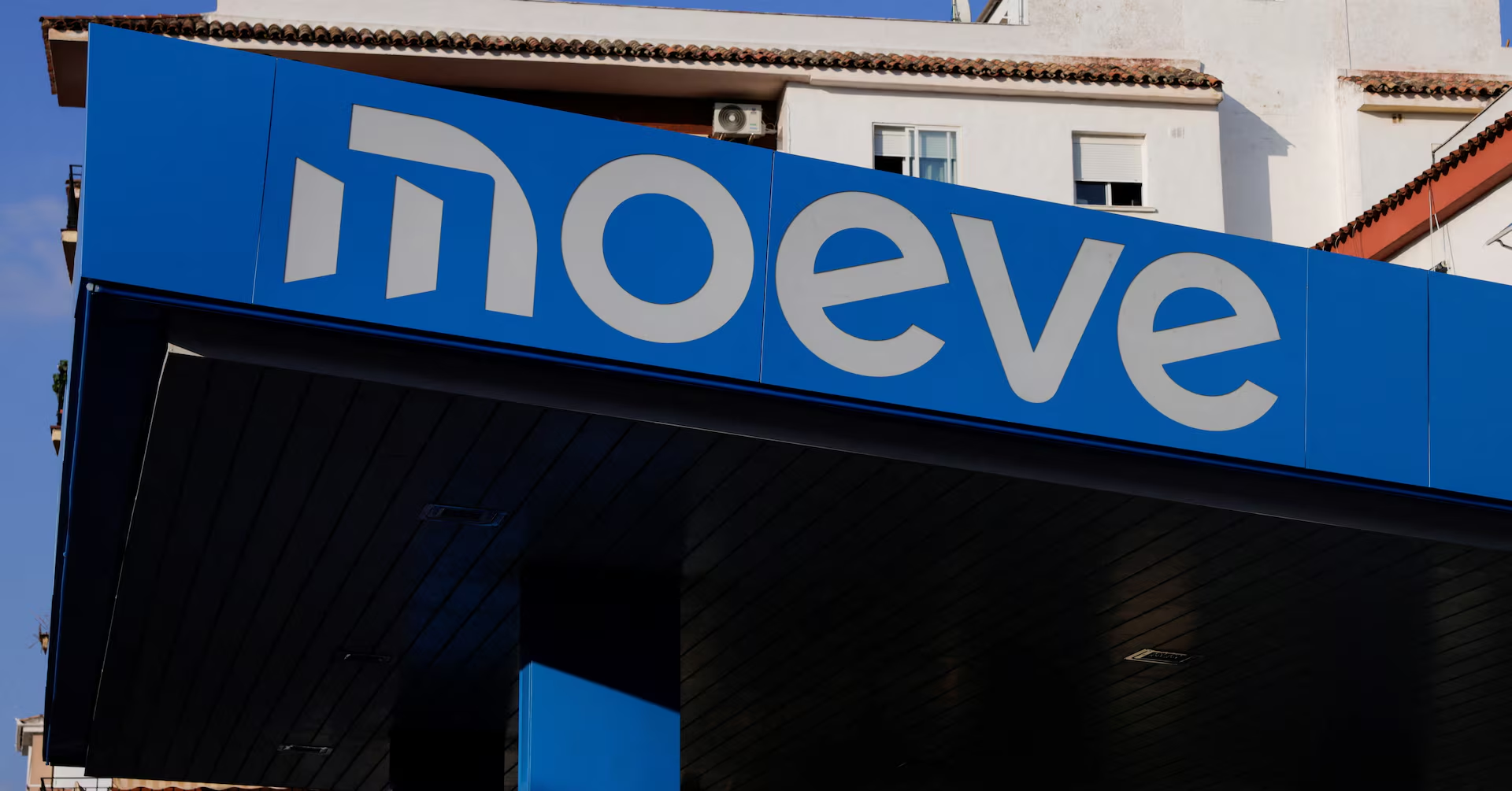COVID-19 infection causes changes to sperm in mice that may increase anxiety in their offspring, a study released Saturday said, suggesting the pandemic’s possibly long-lasting effects on future generations.
Researchers at the Florey…

COVID-19 infection causes changes to sperm in mice that may increase anxiety in their offspring, a study released Saturday said, suggesting the pandemic’s possibly long-lasting effects on future generations.
Researchers at the Florey…

Hubert Hurkacz and Iga Swiatek are running it back. Two-time defending finalists Poland are the first team to commit to the 2026 United Cup.
The 2025 Wimbledon champion and former ATP World No. 6’s early commitment…

LONDON, Oct 13 (Reuters) – Spanish energy company Moeve has become the first external supplier of sustainable aviation fuel to join Shell’s blockchain-based platform for scaling SAF use, the oil major told Reuters after a deal was signed.
Shell’s Avelia platform is a “book and claim” system that aims to connect airlines, fuel suppliers and corporate buyers. Avelia, launched in 2022 with Amex Global Business Travel and Accenture, had facilitated over 41 million gallons of SAF use across 17 airports as of mid-2025.
Sign up here.
Moeve produces SAF from used cooking oil at its La Rábida Energy Park. It plans to expand overall capacity to 800,000 metric tons a year by 2030.
Reporting by Stephanie Kelly; Editing by Kirsten Donovan
Our Standards: The Thomson Reuters Trust Principles.

Investing.com — STAAR Surgical’s (NASDAQ:STAA) largest shareholder, Broadwood Partners, has renewed its criticism of the company’s board ahead of the October 23 vote on its $28-per-share sale to Alcon (NYSE:ALC), accusing directors of “carelessness” after a new proxy report suggested they may have approved the deal without full information.
In a letter Friday, Broadwood blasted the board for reaffirming support for the merger “within twelve hours” of a Glass Lewis report that alleged key executives withheld details about interest from another potential buyer.
“We find the Board’s apparent haste to look past the new developments very troubling,” Broadwood wrote, before launching into a series of questions.
The firm pressed the board to explain how it reaffirmed support so quickly, asking when directors met, whether they re-evaluated the deal’s fairness with advisers, and if previously undisclosed acquisition interest was ever fully discussed before endorsing the Alcon merger.
“At worst, this Board has again given proper process short shrift and, at best, has acted so swiftly as to lack credibility altogether,” Broadwood President Neal Bradsher added.
Broadwood, which owns roughly 27.5% of STAAR’s shares, said the board’s haste raises “grave concerns” about diligence and fiduciary oversight. It urged investors to vote against the merger and push for a “credible reset process.”
In its post–Glass Lewis release, STAAR reaffirmed many of the same rebuttals seen in its October 6 statement. The company again rejected Broadwood’s accusations as “flawed, misleading, and misinformed,” emphasizing that the Alcon deal represents a 59% premium to STAAR’s 90-day average trading price prior to the announcement and followed a year-long strategic review.
STAAR argued that acquisition interest cited by Glass Lewis and Broadwood “was not credible or actionable,” stressing that no competing offers have surfaced despite public speculation. The company said that made Alcon’s $1.5 billion all-cash offer the best available option for shareholders.
In its rebuttal, STAAR also accused Broadwood of attempting to gain control “without paying any premium” and warned that rejecting the deal could “place downward pressure on valuation” and cause “lengthy disruption” for patients, employees, and shareholders.
The renewed exchange follows Glass Lewis’s call for investors to vote against the merger, urging shareholders to “scupper the current arrangement in favor of either a full process reset or the unadulterated pursuit of the company’s standalone potential.”

A new global metric shows how everyday foods, from beef to coffee, carry vastly different extinction costs, exposing how our diets and imports quietly shape the future of Earth’s wildlife.
Study: Food impacts on species…

As efforts to quantify the health effects of microplastics continue, Interesting Engineering highlighted first-of-its-kind research presented at a gastroenterology conference in Austria.
Although there’s still so much that…
SHANGHAI, CHINA – AUGUST 14, 2025 – Tourists are visiting the Bund in Shanghai, China on August 14, 2025.
Cfoto | Future Publishing | Getty Images
Asia-Pacific markets fell Monday after China and the U.S. tightened trade restrictions and traded fresh accusations, renewing tensions between the world’s two largest economies.
China on Sunday said “we are not afraid of” a trade war with the United States after President Donald Trump vowed to impose punishing new retaliatory tariffs on Chinese imports.
A spokesperson for China’s Ministry of Commerce accused the U.S. of a “textbook double standard” with Trump’s promise on Friday to tack on additional 100% tariffs on those imports after China imposed new export controls on rare earths minerals.
The recent policy announcements may signal that China intends to push for greater concessions from the U.S., Goldman Sachs wrote in a note Sunday.
Australia’s ASX/S&P 200 lost 0.68%. South Korea’s Kospi plunged 2.35%, and the small-cap Kosdaq declined 2.24%.
Futures for Hong Kong’s Hang Seng Index pointed to a lower open, trading at 24,968, against the index’s previous close of 26,290.32.
Japan markets are closed for the holidays.
In a Truth Social post on Sunday, Trump suggested to investors the president may not follow through on his threat to post a “massive increase of tariffs” on China.
That comment on Friday brought the U.S. trade war with China back to the fore, and sent stocks tumbling in a rout that wiped out $2 trillion in market value.
“Don’t worry about China, it will all be fine! Highly respected President Xi just had a bad moment. He doesn’t want Depression for his country, and neither do I,” Trump wrote. “The U.S.A. wants to help China, not hurt it.”
On Friday stateside, the three U.S. major averages declined.
Stocks accelerated selling into the close, with the Dow Jones Industrial Average closing down 878.82 points, or 1.9%, at 45,479.60. The S&P 500 lost 2.71% to settle at 6,552.51, while the Nasdaq Composite fell 3.56% to 22,204.43. The broad-based index’s decline was the largest since April 10.

Wang Li, a mother of two young daughters in Jiangsu province, welcomed the news last…